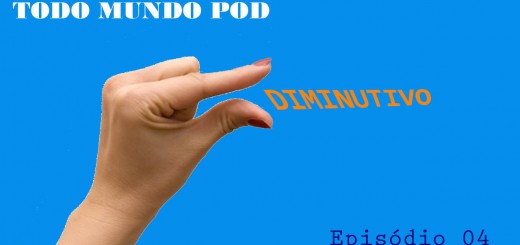Meaning of tamo junto, querer confete, mãos à obra and so forth
Meaning of tamo junto, querer confete, mãos à obra and so forth
Hello there and welcome to our Portuguese Basic Tips 80, called meaning of tamo junto, querer confete, mãos à obra and so forth
On today’s episode, we are going to learn the meaning of some expressions in Portuguese such as: tamo junto, quanto mais eu rezo mais assombração me aparece, querer confetes and mãos à obra.
Visit our previous episode called Meaning of cantar de galo, frio na barriga and others
Let’s get started!
Quanto mais eu rezo, mais assombração me aparece
This is that kind of expression that only makes sense if spoken in Portuguese. I mean if we try to translate this into English, we will literally have the sentence “the more I pray, the more ghosts appear to me”.
I don’t know if it explains the exactly meaning of the sentence. Just imagine you see your ex-boyfriend or your ex-girlfriend after a long time. So you say: quanto mais eu rezo, mais assombração me aparece!
This is an ironic way of saying “problems keep coming up, no matter what I do”.
Let’s see another example:
- Já que você chegou cedo hoje, que tal me ajudar a terminar isso? (Since you are here early today, how about helping me out and finish this?)
- Quanto mais eu rezo, mais assombração me aparece! (problems keep coming up, no matter what I do”)
Querer Confetes
Another expression we’ll speak about today is “querer confetes”. Confetes are very used in Brazilian carnival that generally happens in February. They are pieces of shredded paper that people use to embellish the environment. Well, querer confetes is when someone is always searching for compliments. It usually refers to vanity people. We say that they “querem confetes”.
- Eu não sei tocar violão tão bem como você (I don’t know how to play the guitar as good as you do)
- Você toca muito bem! Pare de querer confetes! (You play the guitar very well! Stop saying it).
Mãos à obra
This is another expression that we should not try to understand in its literal meaning. See, here we got the word “mãos” (hands) and the word “obra” (construction), connected by an article and the preposition “a”: mãos à obra! We should understand that as “let’s get started”, “let’s work”.
- Nós ainda temos muito o que fazer. Mãos à obra! (We got a lot to do. Let’s get started!).
- Nós não temos tempo a perder. Mãos à obra! (We have no time to lose! Get to work!)
Tamo junto
This is a very-used expression people speak nowadays. It is a contracted way to say “estamos juntos”, however, again, when we use that, we don’t mean “we are together” or “we are close to each other”. The expression “tamo junto” has something to do with “you can count on me anytime”. I think that’s the best translation to it.
Let’s see an example:
- Não sei como te agradecer pela ajuda! (I don’t know how to thank you for all your help)
- Que é isso?! Tamo junto! (Don’t mention it. You can count on me anytime!).
Click on the link to visit a page containing more Portuguese sayings
Become a Premium Member and download our full transcripts
That’s enough for today.
I hope you like it.
See you next time.
Thanks!
Marcos Sales
Podcast (portuguesebasictips): Play in new window | Download








Recent Comments